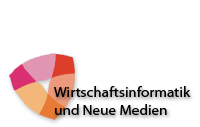ICT 4 CSO – IT Support in Social Activists Communities
Recent literature has highlighted that most non governmental organizations and civil society networks have not been so successful in appropriating technology in their work settings. In this research project we are interested in learning about the impact of information technology applications and tools on the work practices of social activists. In order to get the findings we are focusing on two different activists communities. One is European Social Forum (ESF) and the second is Pakistani civil society.
European Social Forum is a main gathering of international networks of NGOs, labour organizations, trade unions, social movements and activists from all across Europe. The analysis of their geographical and cultural diversity will help us to understand the transnational organizational practices of civil society organizations. European Social Forum (ESF) takes place after every two year (5th ESF was held in Malmo in September 2008 and the next event would be in 2010 in Turkey). We are interested in the knowledge about organizing the forum and IT artifacts transfers from one organizing committee to others. Our main question is how social activists use technology for their collaboration, how this technology is evolved and what the main problems are during the use and establishment of technology.
In Pakistan there is a huge presence of civil society organizations and we are interested in how the activists working in these NGOs and social organizations use information technology. Our main question is to find out how ICT is involved in work practices of NGOs in Pakistan. In order to get an initial finding, we established a detailed online questionnaire. We targeted mainly small voluntary organizations having a small number of permanent employees, because these organizations constitute the majority of the Pakistani civil society.
These empirical findings will help for the development and design of potential information systems for civil society networks. Since both cases are very different with respect to cultural backgrounds, these contrasting cases will help us to understand the specific use of technologies by social activists. The outcomes of this project will provide us with insights in technology appropriation and adoption patterns and associated problems in this socially important sector. These findings will help in design effective socio technical systems facilitating social activists’ community.

